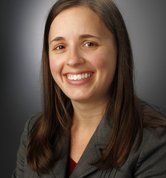Stand up for the facts!
Our only agenda is to publish the truth so you can be an informed participant in democracy.
We need your help.
I would like to contribute
Lots of study, little action
When Gov. Bob McDonnell ran for office in 2009, he promised he would take steps to improve rural health care.
"We will offer assistance to the new VCOM in Blacksburg and the Virginia Tech Carilion School of Medicine in Roanoke, to train more doctors and nurses to practice in rural Virginia,” he said in his health care plan.
The Edward Via College of Osteopathic Medicine, or VCOM, opened in 2003 with a mission to train physicians to practice in rural areas. The Virginia Tech-Carilion School of Medicine opened in 2010.
Taylor Thornley, a spokeswoman for McDonnell, said the governor has aided the schools by successfully urging the General Assembly to increase the state's tuition grant program (TAG) for undergraduate and graduate students who attend private colleges.
Lawmakers allocated $61.8 million for TAG for the budget year that starts July 1 -- an $8.4 million increase over the level two years ago. That means in-state students seeking graduate degrees in health-related fields, including those at the two private medical colleges, are each eligible for a $1,300 grant for the coming school year -- a $170 increase over the amount two years ago.
But there is no requirement that medical students receiving TAG money practice in rural Virginia.
Bill Hazel, secretary of health and human resources, told us the Virginia Tech Carilion School of Medicine will receive a $1.5 million state grant over the next two years to study traumatic brain injuries. But again, the grant is not tied to training rural doctors.
No other state money goes to either of the private medical schools.
Last year, rural legislators created a task force to study ways of enticing health professionals to underserved areas. McDonnell is awaiting its recommendations with an eye towards creating policies, including a program under which the state would assume a portion of medical school loans for doctors who committed to practice in rural areas.
A number of officials in the governor's office told us the promise of assistance to the two private medical schools is a small part of McDonnell's effort to improve rural health care. They noted that the governor signed legislation in 2010 requiring insurance companies to pay for telemedicine services -- diagnoses, consultations and treatments made through audio or video connections between patients and doctors. The legislation was hailed a way to expand health care in remote areas.
Thornley noted that the General Assembly, heeding the governor"s request, increased higher education spending about $100 million over each each of the next two budget years. Thornley said the hope is that some of the money will help institutions graduate more students pursuing science and health careers. We point out again, however, that the new money is not tied health care students serving rural areas.
King College is planning to open a medical college in rural Abingdon in 2013 or 2014. The Virginia Tobacco Commission, a panel charged with spending the state's share of a 1998 settlement with tobacco companies, has contributed $25 million to the $150 million project.
McDonnell also is considering recommendations to improve health care throughout Virginia, made by an advisory panel he appointed in 2010. Many of the ideas deal with broad, workforce recruitment issues.
But let's get back to the specific issue: McDonnell"s pledge of assistance to help two private colleges train physicians to practice in rural areas.
McDonnell offered indirect help to the schools by helping secure a modest increase in tuition grants for their in-state students. But the grants are available to in-state students at all private colleges pursuing graduate health-care degrees and the recipients are not required to practice medicine in rural Virginia.
The governor is also considering a report from one commission and awaiting recommendations from another that pertain to rural health care. We"ll visit this pledge again. For now, we'll give the governor the benefit of the doubt and rate this promise In the Works.
Our Sources
McDonnell for Governor, McDonnell, Bolling and Cuccinelli Focus on Health Care, Sept. 10, 2009.
Emails from Taylor Thornley, April 18 and 25, May 9 and 16, 2012.
Senate Finance Committee, 2013-14 Budget Summary, accessed April 18, 2012.
Virginia Tech Carilion School of Medicine and Research Institute, About VTC, accessed April 18, 2012.
Interview with Virginia Education Department Secretary Laura Fornash and Health and Human Resources Department Secretary Bill Hazel, April 18, 2012.
Virginia Health Reform Initiative, "Report of the Virginia Health Reform Initiative Advisory Council,” Dec. 20, 2010.
Richmond Times-Dispatch, "Tuition grants for private college students increased,” May 18, 2011.
Richmond Times-Dispatch, "Proposed medical school to serve Southwest, Southside Virginia gets grant,” Oct. 31, 2009.
Interview with Larry Hincker, associate vice president for university relations at Virginia Tech, Blacksburg, May 19, 2012.
Email from Larry Hincker, May 10, 2012.
Email from Dixie Tooke-Rawlins, dean and executive vice president at Edward Via College of Osteopathic Medicine, May 15, 2012.
